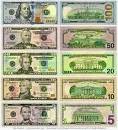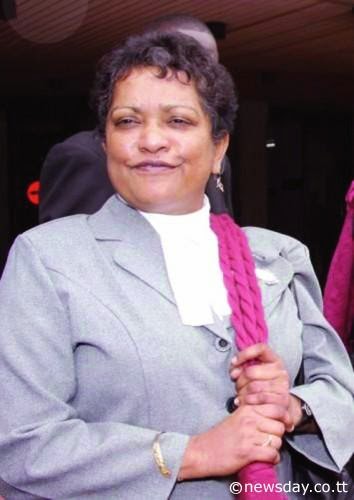The Imperialism Of The US Dollar And The Global Wars Of The Banking Titans
The Caribbean Is One Nation.
The Imperialism Of The US Dollar And The Global Wars Of The Banking Titans
By Pachamama
 After World War Two virtually all national economies were in ruins, except the United States, of course. These circumstances gave rise to the United States dollar as the medium of exchange between countries. In this process countries were forced to exchanged their national currencies for US dollars to settle amounts owned to foreigners. And foreign countries were forced to do the same to pay for goods and services. In both cases fees were charged, by predominately American banks, making the transactions more expensive than if national currencies or a basket of currencies could have been used.
After World War Two virtually all national economies were in ruins, except the United States, of course. These circumstances gave rise to the United States dollar as the medium of exchange between countries. In this process countries were forced to exchanged their national currencies for US dollars to settle amounts owned to foreigners. And foreign countries were forced to do the same to pay for goods and services. In both cases fees were charged, by predominately American banks, making the transactions more expensive than if national currencies or a basket of currencies could have been used.
The Imperialism Of The US Dollar And The Global Wars Of The Banking Titans
By Pachamama
 After World War Two virtually all national economies were in ruins, except the United States, of course. These circumstances gave rise to the United States dollar as the medium of exchange between countries. In this process countries were forced to exchanged their national currencies for US dollars to settle amounts owned to foreigners. And foreign countries were forced to do the same to pay for goods and services. In both cases fees were charged, by predominately American banks, making the transactions more expensive than if national currencies or a basket of currencies could have been used.
After World War Two virtually all national economies were in ruins, except the United States, of course. These circumstances gave rise to the United States dollar as the medium of exchange between countries. In this process countries were forced to exchanged their national currencies for US dollars to settle amounts owned to foreigners. And foreign countries were forced to do the same to pay for goods and services. In both cases fees were charged, by predominately American banks, making the transactions more expensive than if national currencies or a basket of currencies could have been used.
This structure gave rise to United States banks as the leading financial institutions in the global economy. In addition, the post Bretton Woods architecture made the US dollar the reserve currency of the world. By 1971 the pretense of a 'gold standard' was removed as we entered the age of the supreme fiat currency. This monopoly by the major United States banks was later seen as a source of stupendous political power as the USA then sought to impose sanctions and USA law on world countries and other entities when it perceived that its interests were at stake. In recent times an overarching global grab for power has seen the USA imposing penalties on European banks for alleged violations of US law, for actions occurring outside of US territories. It's a staggering development that although these competitor institutions never did anything in contravention of their national laws, that the USA could have the audacity to have determined that its laws had been broken. For the laws of Empire must have precedence over those of its colonies.
At the micro level, if a 'shoemaker man' from around dey by de bus stand went to Trinidad & Tobago for carnival and sent back 10 US dollars to his son, both the Trinidad and Tobago authorities and the Barbados authorities would have to inform the Treasury Department of the USA about that transaction. Even as a businessman, you were dealing in US dollars between second and third countries and the Treasury Department determined something you did violated US law, there may be a case to answer in a country you never visited and might not even have a visa to visit. As a US incorporated entity doing business international, especially in developing countries, you maybe easily ensnared by the stricture of the Foreign Corrupt Practices Act, as selectively enforced as it is.
Credit Suisse was recently fined US$2.6 billion for tax evasion, essentially for providing 'off-shore type' financial services to US citizens in US dollar transaction. Just having the transaction in US dollars is in itself, under US law, no matter where in the world you maybe, a reason to attract legal attention. And there have been and will be more and more Swiss banks which will have to deal with the American corporate imperium. The Swiss themselves went to their Parliament to pass a law allowing Credit Suisse and other large high street banks to release the names of American citizens with banks accounts in Switzerland. Switzerland a county well known for some of the strongest banking privacy laws in the world was brought to heel. We must ask whether the firewall of the blind trust can prevent the infiltrations of empire? And the whole global financial architecture is controlled by the United States.
We have dealt with Switzerland but all major European banks are in the crosshairs. For example, French bank BNB Paribas was recently fined US$9 billion for similar USA determined violations. But the Europeans have some weapons in their quiver as well. The biggest British bank HSBC, its partner JPMorgan and Credit Agricole of France were charged with rigging financial benchmarks linked to the euro by the regulators in Brussels and Washington. Even the small Caribbean island of Bermuda has recently refused to open accounts for US citizens for fear of the ire of the ugly massa from up north.
With all this financial war going on it is instructive that the BRICS initiative to establish a US$100 billion multilateral bank to rival the World Bank has recently been a subject for discussions between Presidents Putin and Rosseff in Brazil and is sending shockwaves throughout the international financial community. In addition, it was the Russians who recently signed the largest gas deal in the history of mankind with the Chinese, in the Chinese Yuan/Renimbi. These are the acts over which wars are fought. The size of this deal remains a state secret but observers believe it could be for as much as the equivalent of US$400 billion. None of the western banks will make one penny on this deal, directly. Some bankers may see this deal as a cause celebre, a cause for war. These are only a few indications which portend the changing of the guard. In addition, there are other forces at work. These may include, a rising and popular lack of confident in the US dollar; the relative strengths of other national currencies; the rise of a range of crypto-currencies; gold, silver, diamonds and art as safe havens.
More deeply, the political, economic, social, technological, environmental and legal circumstances may well favour certain strategic realignments. Maybe the banks from BRICS countries will play a larger global role. Maybe, the World Banks will cede prestige to the BRICS Development Bank as the premiere financial and development institution. Maybe, a basket of currencies will replace the US dollars as the international medium of exchange. Maybe, crypto currencies will displace fiat money entirely. Just maybe, the monopoly of the United States Treasury Department and the long privatized Federal Reserve will loose their abilities to issue unlimited amounts of fiat money to fight wars against countries with real assets, for real assets. Maybe, the USA will loose its ability to impose financial imperialism on all the rest of us. Maybe!
Pachamama is a social commentator



Comments